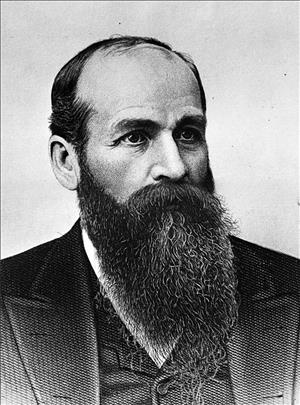On July 10, 1876, voters elect Gideon A. Weed as mayor of the Town of Seattle.
Pursuant to the charter approved by the legislature, the mayor's term of office was one year. Elections were held on the second Monday of July.
Weed, who did not declare a party affiliation, was a medical doctor who settled in Seattle in 1870. Both he and his wife had been practitioners of hydropathy in Salem, Oregon, in the 1850s. Hydropathy, also known as the "water cure," involved the internal and external use of water in an attempt to cure disease. Weed later received training in conventional medicine in California.
Weed was one of only about 10 physicians in Seattle in the 1870s, and he quickly established a successful practice. He also made a number of "fortunate investments" in Seattle real estate. By mid-decade, he had both a "considerable fortune" and "a prominent place among the business men and municipal activities of the little city" (Bagley, vol. 1, p 321-322). His prosperity was reflected in the elaborate home he and his wife built on the northeast corner of 2nd Avenue and Madison Street.
In 1874, Weed opened a private hospital, working under a contract with the commissioners of King County to provide medical care to indigent patients. He later closed this hospital, but continued to hold a contract with the county, treating the indigent at the Sisters of Charity's Providence Hospital.
Weed was re-elected for a second term as mayor in 1877 (at the time, the city charter stipulated that mayors and councilmen serve one-term terms, beginning in July). During his second term, he also served as acting health officer, the first such official to be appointed by the city. He was credited with easing the financial impact of a smallpox epidemic on the city's limited resources by paying for the care of some indigent patients with his own funds. There were a total of 18 cases of smallpox in the city in a 12-month period ending July 30, 1877, and the costs of treating the indigent amounted to about $1,000 -- a sizeable sum at the time.
At Weed's urging, the Legislature amended the city charter to create a permanent position for a health officer, effective early in 1878. He held the office again himself in 1884.
Weed was active in the Washington Territory Medical Society, serving as president in 1879, as treasurer from 1881 to 1884, and as vice president in 1890. He was a charter member and first president of the King County Medical Society when that group was organized in 1888.

